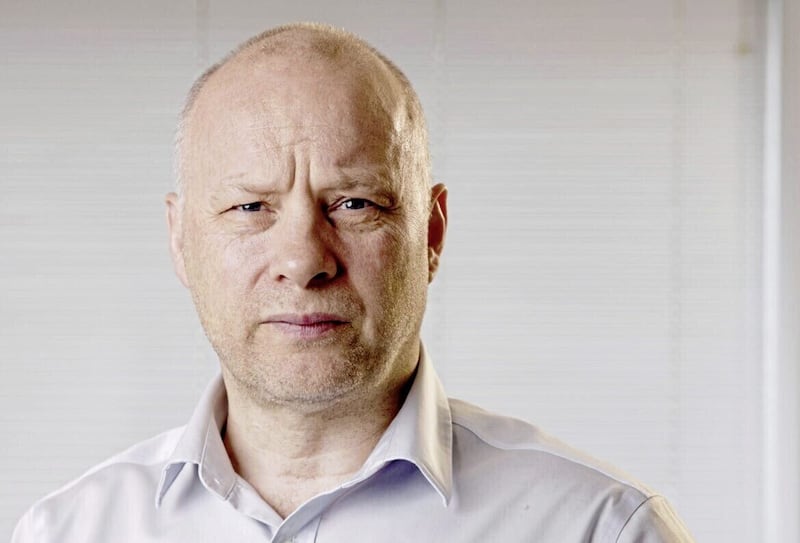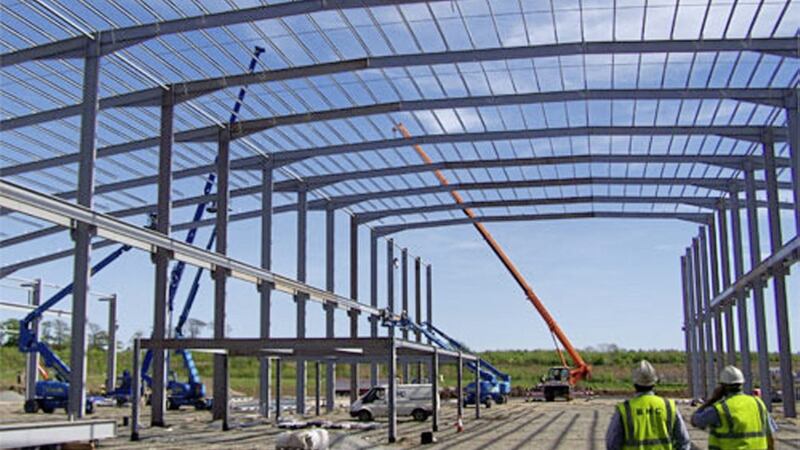Private sector firms in the north are enjoying a business bounce as activity rose for the fifth month running and order books continue to grow, a survey says.
And firms remain “very optimistic” about output in 12 months’ time, according to sentiment expressed in the latest Ulster Bank Northern Ireland PMI report, covering April.
The report indicated that a further sharp rise in new orders fed through to continued growth of business activity in the private sector.
- North’s private sector grew much faster than UK average during March, new survey suggestsOpens in new window
- North’s businesses at their most optimistic for three years, following return of executive at StormontOpens in new window
- North’s private sector ended 2023 in growth mode, new business survey from Ulster Bank suggestsOpens in new window
It also showed that rising demand in manufacturing was accompanied by the first increase in backlogs of work in 12 months - and firms have responded by increasing their staffing levels at a faster rate than all other UK regions.
Business confidence also remained elevated and firms upped the pace of job creation. Meanwhile, input costs increased rapidly, but the pace of selling price inflation softened.
The Ulster Bank findings come after official government figures on Friday revealed that the UK economy rebounded out of recession with faster-than-expected growth over the first quarter of 2024.

The Office for National Statistics said gross domestic product (GDP) is estimated to have risen by 0.6% between January and March.
It comes after two quarters of decline – which represents a technical recession – in the back half of 2023.
Main findings of the April PMI survey show that although the headline seasonally adjusted Business Activity Index dipped to 54.5 in April from 56.6 in March, the reading still signalled a marked monthly rise in business activity.

Output increased across all four monitored sectors, led by manufacturing, where the pace of expansion quickened to a 25-month high.
New orders increased sharply, with the rate of growth only slightly weaker than in March. Meanwhile, new export orders neared stabilisation.
Ulster Bank’s Northern Ireland chief economist Richard Ramsey said: “The region’s private sector continued in expansion mode at the start of the second quarter. Local firms chalked up their fifth successive monthly rise in business activity in April, albeit the pace of growth was slower than in March.
“Services, construction, and retail all reported slower rates of output growth in the latest survey while manufacturing bucked this wider trend.
“Manufacturers posted their fastest rate of output growth in 25 months during April. Outside of the pandemic period, it was the strongest rate of manufacturing output growth since September 2014.”
Mr Ramsey added: “Three of the four sectors witnessed a pick-up in new orders with only services reporting a slowdown. Manufacturers recorded their best month for new business in two years while construction firms reported their highest rates of new orders in three-and-a-half years. The latter is somewhat flattering given how subdued construction activity has been in recent years.
“Rising demand was accompanied by the first increase in backlogs of work in 12 months. Firms have responded by increasing their staffing levels at a faster rate than all other UK regions.
“Inflationary pressures intensified last month with input costs rising at their fastest clip in twelve months. The increase in shipping costs was cited alongside rising wages and specifically the April uplift in the National Living Wage.

“These cost pressures are most apparent amongst retailers with this partly due to the significant lengthening of suppliers’ delivery times and increased costs resulting from the ongoing Red Sea disruption.
“Encouragingly, local firms remain very optimistic about output in 12 months’ time. The number of firms expecting output growth outnumbers those anticipating a decline by more than four to one.
“The construction industry is the most optimistic about future output since the question was added to the survey over seven years ago.
“Overall, the latest survey offers encouraging signs about the state of the local private sector.
“However, the challenges facing the public sector remain, and these will impact on parts of the private sector in due course.”







